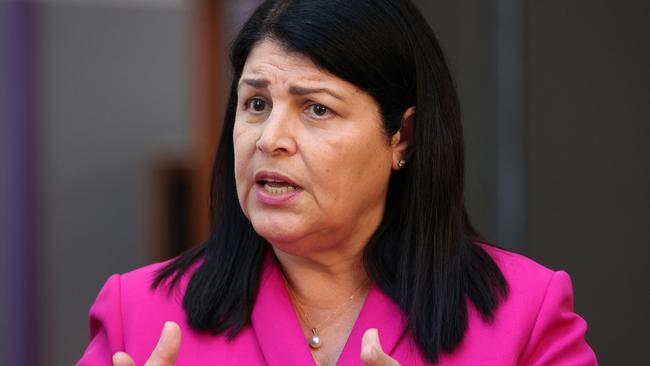Qld student digital literacy levels remain third worst in country
A major problem remains in Queensland schools - and there are yet to be many signs of progress. ALL THE DETAILS
QLD News
Don't miss out on the headlines from QLD News. Followed categories will be added to My News.
Queensland is the third worst-performing state in the country in digital literacy, according to the latest national test results.
The state’s Year 6 and Year 10 digital literacy levels fell off a cliff between 2011 and 2014, and while the decline did not continue, the results are yet to bounce back.
Year 6 results have clawed back some ground and improved in the past few years, but the level of the state’s Year 10 students’ digital literacy dropped in the latest testing period.
The National Assessment Program’s Information and Communication Technology Literacy (ICT) test is held every three years and involves a sample of Year 6 and Year 10 students.
The first assessment was conducted in 2005. The scheduled 2020 test was delayed by the COVID-19 pandemic and was instead done last year.
Almost 900 Year 6 students from 50 Queensland schools and just over 700 Year 10 students from 49 Queensland schools sat the NAP-ICT assessment in 2022.
In the Year 6 cohort, Queensland was ranked sixth of eight in the state-by-state comparison, beating only Tasmania and the Northern Territory. It was the same story in 2017.
On a positive note, the gap on South Australia and Western Australia has narrowed after Queensland recorded a notable improvement compared to 2017.

The Sunshine State also improved the percentage of students at or above the proficiency standard, going from ranked seventh in 2017, to fourth in the 2022 state-by-state results.
But overall, Queensland Year 6 students are still a way behind the national average and a significant gap remains between Queensland and the top three performing states.
In the Year 10 cohort, the Sunshine State again registered the third worst performance across the country, only beating Tasmania and the Northern Territory – as was the case in 2017.
Encouragement can be drawn from the gap narrowing between Queensland and NSW, South Australia and Western Australia – all of which hold slender leads.
The Sunshine State also improved the percentage of students at or above the proficiency standard, going from ranked sixth in 2017, to fifth in the 2022 state-by-state results.
These three states all suffered sizeable slips in digital literacy levels on the 2022 assessment, while Queensland’s results dropped only slightly.
Education Minister Grace Grace said the state government is delivering free and subsidised digital devices for thousands of students to boost ICT literacy levels.
“Queensland has improved its national ranking in proficiency standards for ICT literacy in both the Year 6 and Year 10 categories, and we welcome this,” Ms Grace said.
“We also want to see further improvements, hence our Excellence and Equity education strategy has a strong focus on digital innovation in teaching and learning, including building staff capability.
“We’ll continue to invest in ICT and digital education initiatives as part of our commitment to improving outcomes for Queensland students.”
The Equity and Excellence strategy aims to improve connectivity through bandwidth upgrades and enhance the skills of teachers in delivering digital learning sessions.
Historically, Queensland – and most other states and territories – saw digital literacy levels nosedive between 2011 and 2014.
ACARA could not offer a specific explanation for this drop across most states and territories, but it is worth noting that the new Australian Curriculum: Digital Technologies was progressively implemented across the country, starting in October 2015.
“The Digital Technologies curriculum teaches students how to use digital technologies to create, for example, digital solutions with computer code such as developing an automated watering system for a school garden, analyse data and understand different forms of a network and security issues involved – for example, Bluetooth and wireless,” ACARA CEO Robert Randall said in 2018.
“ACARA has been funded to support the implementation of the Australian Curriculum: Digital Technologies in some of Australia’s most disadvantaged schools. One hundred and sixty schools with a low index of community socio-educational advantage rating are participating in the project, called Digital Technologies in focus.”
Originally published as Qld student digital literacy levels remain third worst in country



